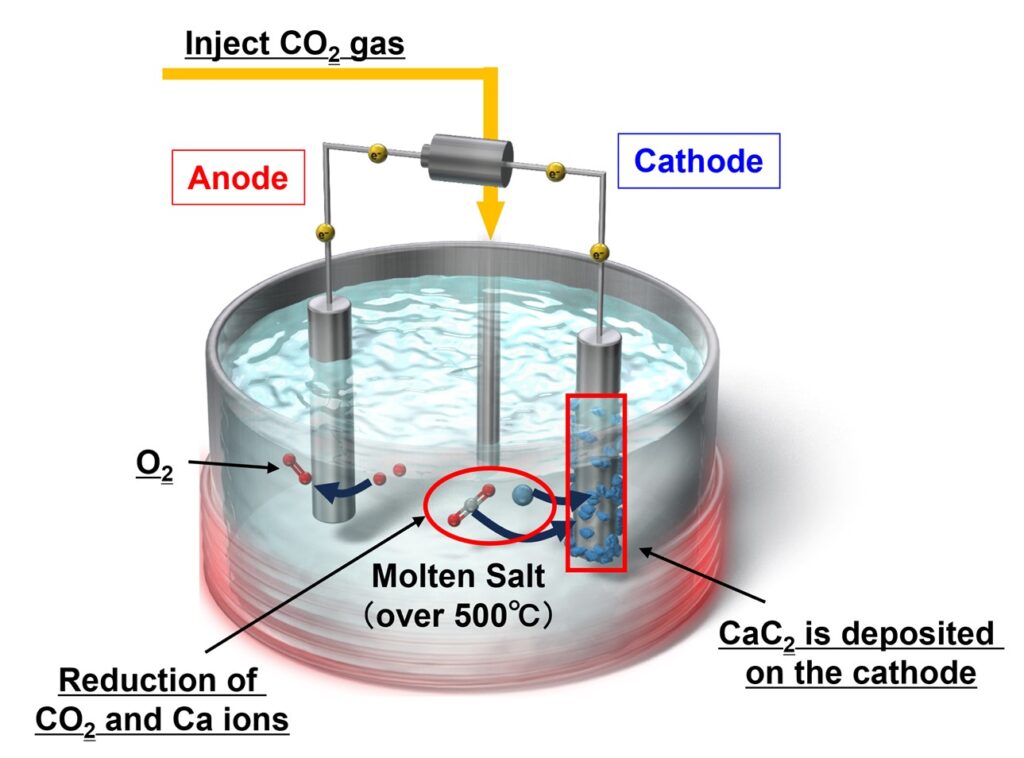Advancing Towards Sustainability: Turning Carbon Dioxide and Water into Acetylene
A research team led by Yuta Suzuki, Assistant Professor at Harris Science Research Institute and Takuya Goto, Professor at the Department of Science of Environment and Mathematical Modeling, Graduate School of Science and Engineering, develop an environmentally friendly method to electrochemically synthesize an essential industrial gas.
Acetylene is an essential precursor in the production of resins and plastics such as PVC, as well as a useful gas in many industrial processes. However, its synthesis requires fossil fuels, making it environmentally taxing. Now, Suzuki, Goto and their research team have developed an innovative electrochemical technique to produce acetylene using carbon dioxide and water as raw materials. This method could greatly reduce the carbon footprint of acetylene synthesis and contribute to sustainable carbon capture technologies.

The search for sustainable method to produce acetylene
Acetylene is widely used in across many industries, including the production of resins and plastics like PVC. Realizing an environmentally friendly technique to synthesize it would represent a massive step towards building sustainable societies.
Reference
Suzuki Y., Tanaka S., Watanabe T., Isogai T., Yamauchi A., Kishikawa Y., Goto T. New Route of Acetylene Synthesis via Electrochemical Formation of Metal Carbides from CO2 in Chloride Melts (2024) ACS Sustainable Chemistry and Engineering, 12 (5), pp. 2110 – 2119.
DOI: 10.1021/acssuschemeng.3c08139
For more details, please see the website of Organization for Research Initiatives and Development, Doshisha University.
[Research News] Advancing Towards Sustainability: Turning Carbon Dioxide and Water into Acetylene
This achievement has also been featured in the “EurekAlert!.”
NEWS RELEASE 27-MAR-2024, Advancing Towards Sustainability: Turning Carbon Dioxide and Water into Acetylene
Image Credit: Yuta Suzuki from Doshisha University, Japan
License type: CC BY

